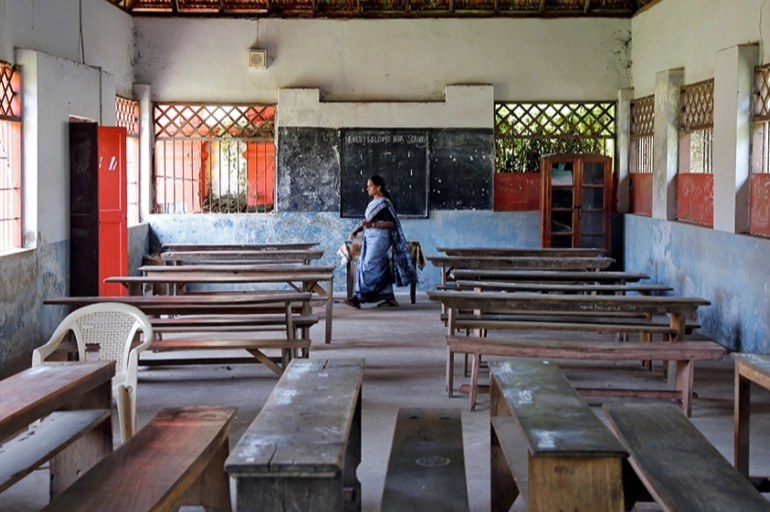
The pandemic contributed to 17 percent of the total number of children falling victim in the global learning crisis in 2021. [Photo: Reuters]
United Nations, March 22 (RHC)-- More than half of the world’s 10-year-olds could be unable to read and understand a sentence by the end of the year, according to a new analysis by the ONE campaign.
The anti-poverty organisation warned on Monday that 70 million children could be affected in 2021, according to calculations based on figures released by the World Bank, UNESCO and UN population data.
According to the report, the pandemic contributed 17 percent to the total number of children falling victim to a global learning crisis that could hamper the potential of a generation.
Schools around the world have been closed for extended periods during the past year, as governments imposed restrictions on populations in an attempt to contain the spread of the coronavirus. According to UNESCO, the education of 1.7 billion children in 188 countries was heavily disrupted in 2020.
The closures have forced classes online, but the rise of remote learning has been uneven across the globe, with access to technology and a lack of infrastructure hindering some students’ ability to take part. The UN estimated that nearly 500 million children, especially those in poorer countries or rural areas, have been excluded from remote education.
According to the ONE campaign analysis, the learning crisis is expected to hit Africa and Asia particularly hard, with sub-Saharan Africa accounting for 40 percent of children at risk.
By 2030, the number of children lacking basic literacy by the time they turn 10 could rise to 750 million, or approximately one in 10 people globally, the group warned.
David McNair, executive director for global policy at The ONE Campaign, told Al Jazeera that children’s ability to understand a sentence by the age of 10 was an important milestone. “[This] kicks off a whole lifetime of self-directed learning and innovation and has implications for their ability to get an education, innovate, get a job, earn and so on,” he said.
“Unless we take urgent action, the legacy of the pandemic could be millions more children denied the chance to understand words on a page,” he said. As a response to this crisis and before the G7 Sherpa meeting, the organisation has urged governments to commit at least $5bn to fund the Global Partnership for Education (GPE), arguing that it will enable 175 million girls and boys to learn between 2021-2025.
It has also called on governments to support developing countries’ finances with a stimulus package and an extension of repayment deadlines, so countries can use those resources to invest in schools and education.
“I believe this is the absolutely right thing to do,” McNair said. “It’s unfair that if you are born in a particular part of the world, your options to fulfil your potential are curtailed by just not getting the right education at the start of life.
“If you don’t invest in these problems early then they can come back to be more costly and problematic. If we had, before this pandemic, fully implemented the protocols on pandemic preparedness, if we had invested more in health systems across the world, then we wouldn’t be in this situation,” he added.

